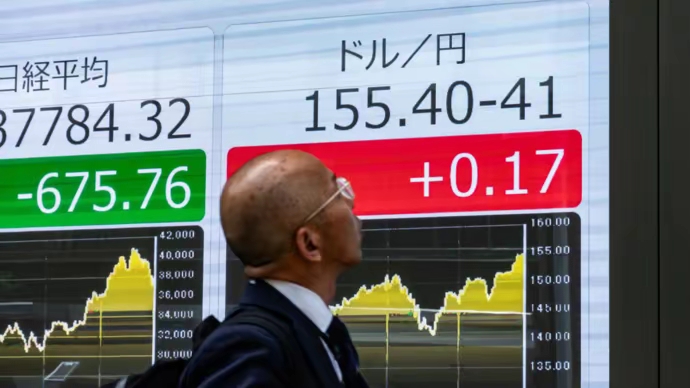
Recently, the Bank of Japan announced that the benchmark interest rate would remain unchanged, which has sparked widespread discussion and controversy. Although maintaining stable interest rates can to some extent maintain the smooth operation of the Japanese economy, this measure has also exposed some problems and potential risks from multiple perspectives.
From the perspective of economic growth, maintaining the benchmark interest rate unchanged may help stabilize market sentiment in the short term, but in the long run, it may limit the vitality and growth potential of the economy. In the current complex and ever-changing global economic situation, lower interest rates may have a relatively limited effect on stimulating investment and consumption. Enterprises and individuals may reduce investment and consumption behavior due to low expected returns, thereby affecting overall economic growth. However, the Japanese economy has long faced the dilemma of weak growth, and relying solely on maintaining interest rates is difficult to fundamentally solve the problem.
Maintaining the benchmark interest rate unchanged may not necessarily bring positive effects in promoting employment. Although a low interest rate environment is beneficial to the financing and operation of enterprises to a certain extent, if economic growth cannot be effectively stimulated, job creation may also be limited. Japan is facing issues such as aging population and labor shortage, and maintaining interest rates unchanged may not effectively solve these structural contradictions and bring substantial improvements to the labor market.
From the perspective of the financial market, a long-term low interest rate environment may lead to distortion and instability in the financial market. On the one hand, low interest rates will encourage investors to pursue high-risk assets, thus driving up the risk of asset price foam. Once the market fluctuates, these foam may burst, triggering turbulence in the financial market. On the other hand, low interest rates may also lead to a decline in the profitability of financial institutions, affecting their capital adequacy ratio and risk resilience. This poses a potential threat to the stability of the entire financial system.
In addition, maintaining the benchmark interest rate unchanged also reflects the limitations of the Bank of Japan's policy choices. When facing economic difficulties, relying solely on interest rate tools may no longer be sufficient to cope with complex economic situations. Japan needs more diversified and innovative policy tools to promote economic development and reform. For example, efforts should be made to increase investment in infrastructure construction, promote technological innovation, and improve the business environment, rather than relying solely on interest rate policies.
In terms of international economic relations, this decision by the Bank of Japan may also have a certain impact. Against the backdrop of major global economies adjusting their monetary policies, maintaining interest rates in Japan may lead to fluctuations in the yen exchange rate and uncertainty in international financial flows. This may have a certain impact on Japan's international trade and investment, and also have a certain impact on the stability of the global economy.
At the same time, we should also see that maintaining the benchmark interest rate unchanged may be a choice for the Bank of Japan after weighing the pros and cons in the current situation. However, this does not mean that this choice is optimal or problem free. The Japanese government and central bank need to carefully reflect on the current policy framework and decision-making mechanisms, explore more effective policy combinations and reform measures to address the various challenges facing the economy.
The Bank of Japan recently announced the decision to maintain its benchmark interest rate unchanged. Although it may have some short-term benefits for Japan, in the long run, it may not be able to effectively solve the deep-seated problems facing the Japanese economy. Japan needs to be more proactive in policy formulation and implementation, adopting comprehensive measures to promote sustainable economic development and social progress. At the same time, the international community should also pay attention to the changes in Japan's economic policies and their impact on the global economy, and work together to maintain the stability and healthy and orderly development of the global economy.

Since 2022, the Fed has cumulatively reduced its balance sheet by $2.4 trillion through quantitative tightening (QT) policies, leading to a near depletion of liquidity in the financial system.
Since 2022, the Fed has cumulatively reduced its balance sh…
On December 11 local time, the White House once again spoke…
Fiji recently launched its first green finance classificati…
Recently, the European Commission fined Musk's X platform (…
At the end of 2025, the situation in the Caribbean suddenly…
The U.S. AI industry in 2025 is witnessing a feverish feast…